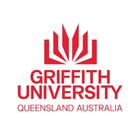Master of Education and Professional Studies Research
- Posted by Griffith University
- Home
- Courses
- Griffith University
- Master of Education and Professional Studies Research
Master of Education and Professional Studies Research
This degree is a research program of advanced professional learning and will help you develop greater expertise in research. You will learn how to apply an advanced body of knowledge and skills in a range of contexts for research, scholarship and as a pathway for further learning. You will plan…
Categories
COURSE DESCRIPTION
This degree is a research program of advanced professional learning and will help you develop greater expertise in research. You will learn how to apply an advanced body of knowledge and skills in a range of contexts for research, scholarship and as a pathway for further learning. You will plan and execute a substantial piece of research, which is reported in the form of a dissertation. The dissertation will investigate a topic that is relevant to the student and would normally be expected to be approximately 30,000 words.
The program will give eligibility for further doctoral research. It is advisable to meet with the program convenor prior to enrolment.
My career opportunities
Students who successful complete this degree will be eligible for entry into a doctoral program and for consideration for higher degree by research scholarships. The program will prepare you for a career in research-related work.
Please note this degree is not an initial teacher education program and will not lead to registration as a teacher in Queensland schools.
Pathways to further study
Students can progress to the Doctor of Philosophy (PhD) or Doctor of Education (EdD) program after successfully completing the program at the required standard.
REQUIREMENTS
For admission to the Master of Education and Professional Studies Research, an applicant is required to hold:
- a postgraduate qualification with a GPA of at least 5.0 in a related discipline
- OR a bachelor degree with at least Second Class Honours (Division B) in a related discipline.
The minimum English Language proficiency requirements for applicants to Higher Degree Research (HDR) programs are as follows: A minimum overall band score of 6.5 on the IELTS (Academic) with no band score less than 6.0; OR a minimum score of 575 on the paper-based TOEFL including a score of no less than 5.0 on the TWE; OR a score of 79 on the internet-based (iBT) TOEFL with no sub-score less than 19; OR a score of no less than 3+ in each skill of the ISLPR (conducted by ISLPR Language Services only); OR a minimum overall score of 176 (no score less than 169) on C1 Advanced (formerly Cambridge Certificate in Advanced English) or C2 Proficiency (formerly Cambridge Certificate of Proficiency in English); OR an overall score of 58 in the Pearson Test of English (Academic) with no score less than 50.
EDUCATIONAL INSTITUTION
Griffith University is ranked in the top 2% of universities worldwide and strives to create a brighter future for all by prioritising innovation and social impact. We are committed to providing international students with quality education, guidance, and support. With Australia’s most awarded teachers, Griffith University offers a full suite of undergraduate, postgraduate and research degrees in areas including architecture, construction, and planning; business and government; criminology and law; education; engineering, IT and aviation; humanities, languages and social science; medicine, dentistry and health; music and performing arts; science and environment; visual and creative arts.
Griffith University is ranked in the top 2% of universities worldwide and strives to create a brighter future for all by prioritising innovation and social impact. We are committed to providing international students with quality education, guidance, and support.
With Australia’s most awarded teachers, Griffith University offers a full suite of undergraduate, postgraduate and research degrees in areas including architecture, construction, and planning; business and government; criminology and law; education; engineering, IT and aviation; humanities, languages and social science; medicine, dentistry and health; music and performing arts; science and environment; visual and creative arts.




